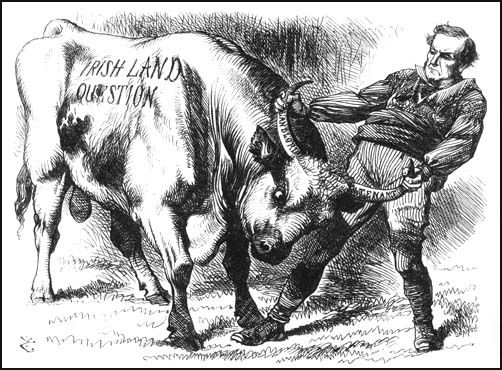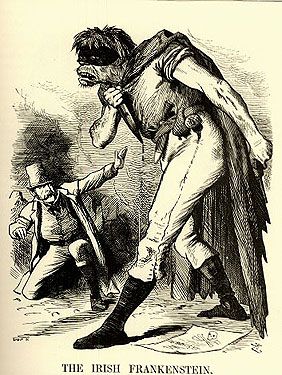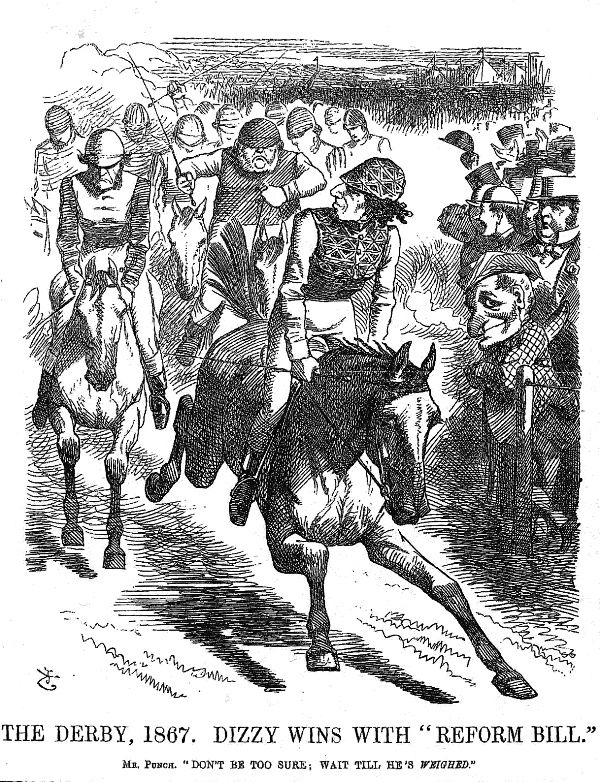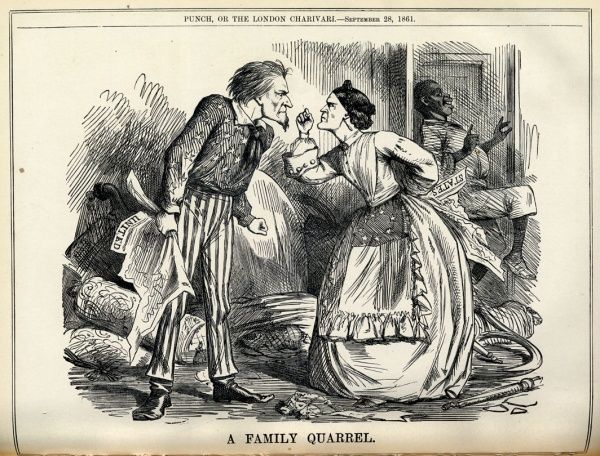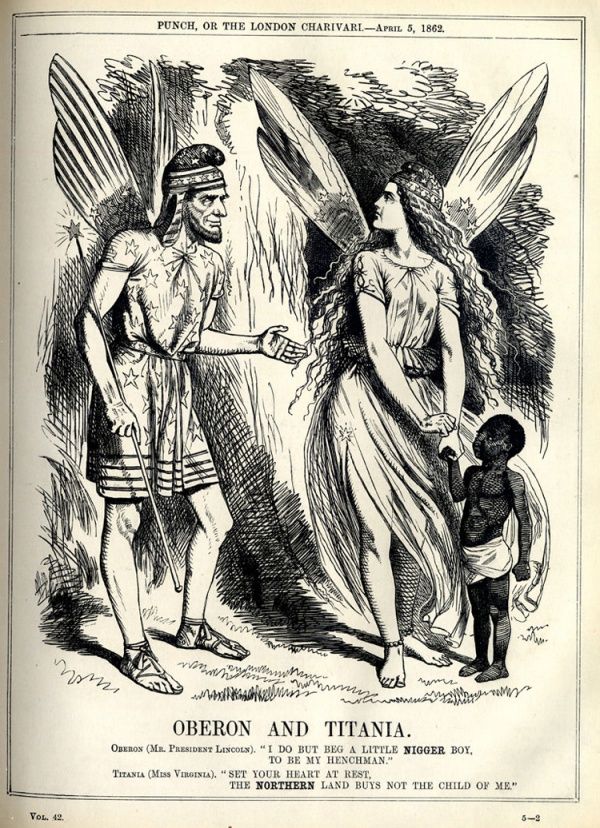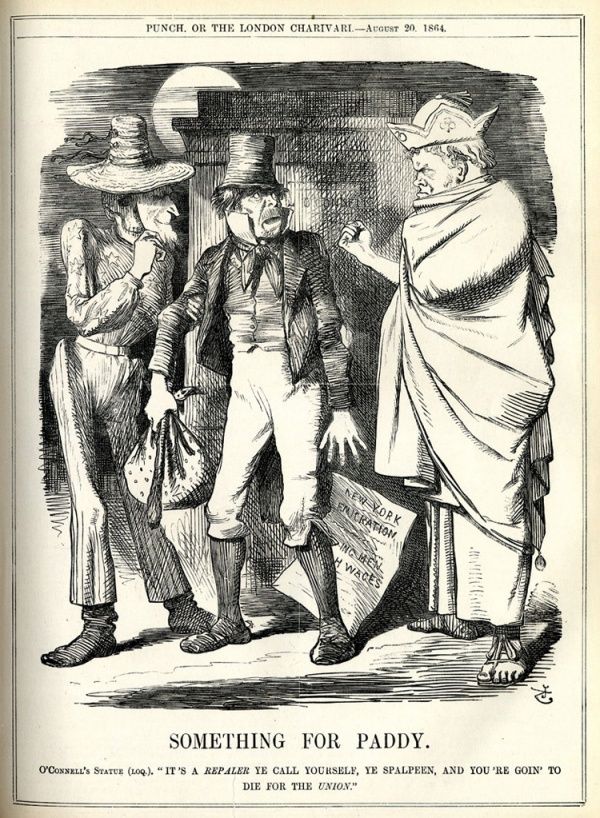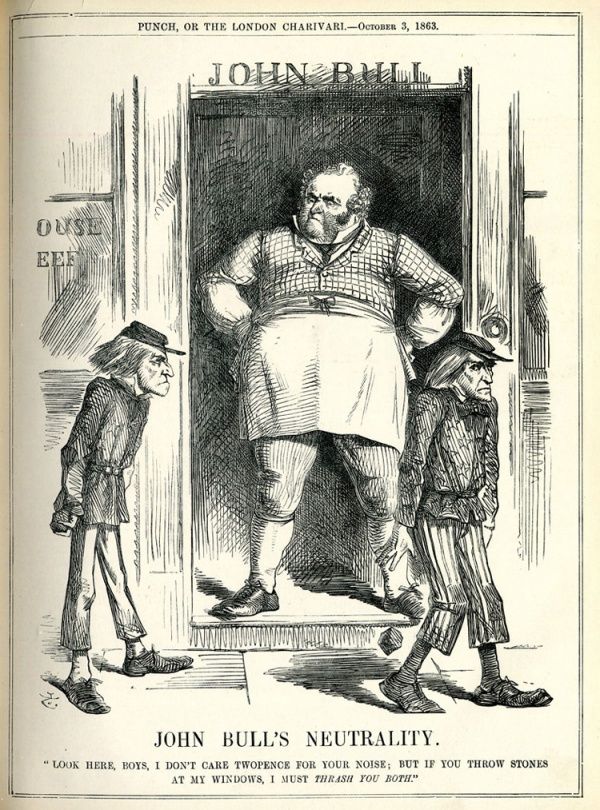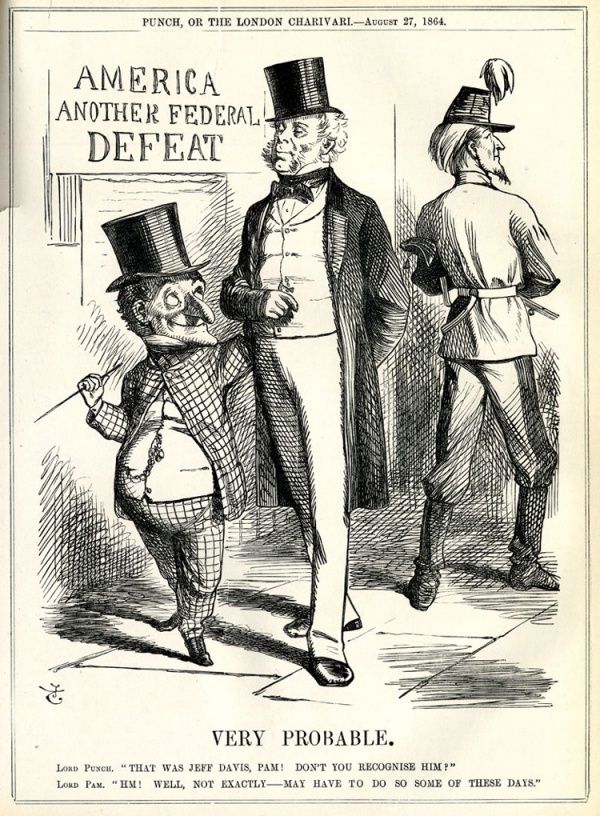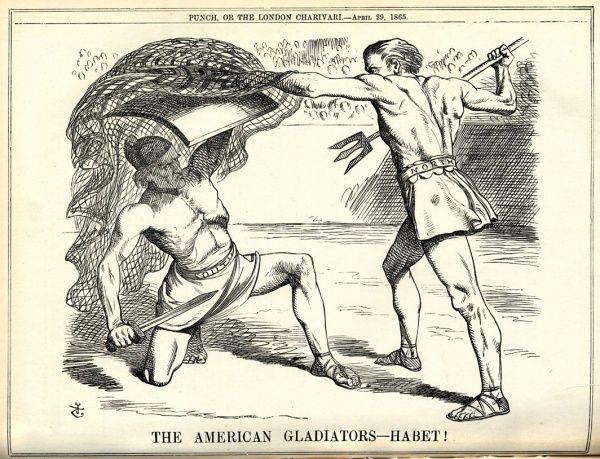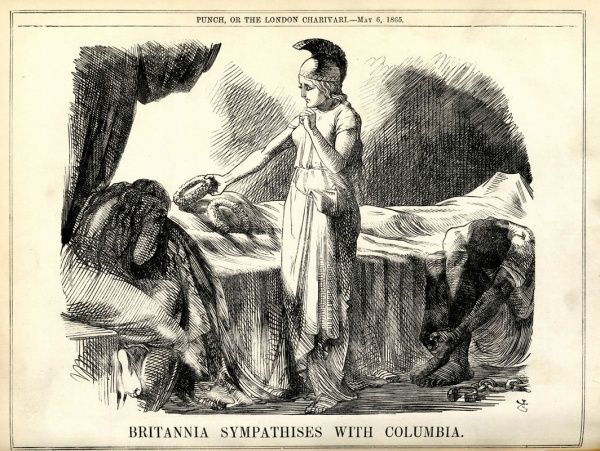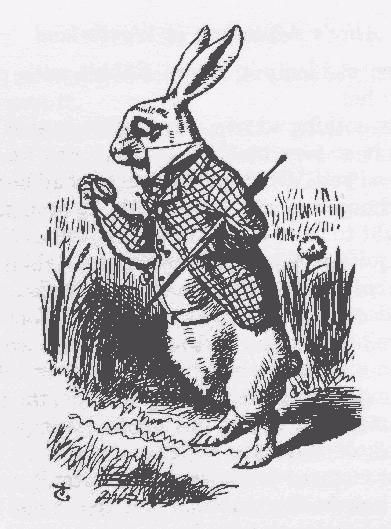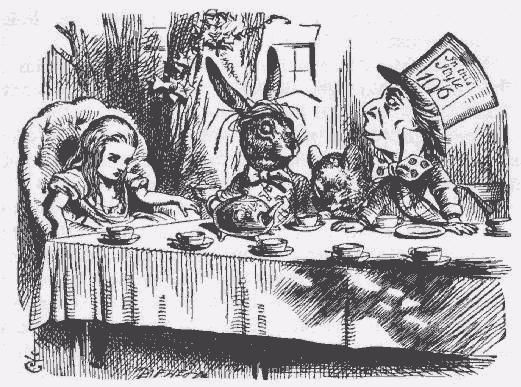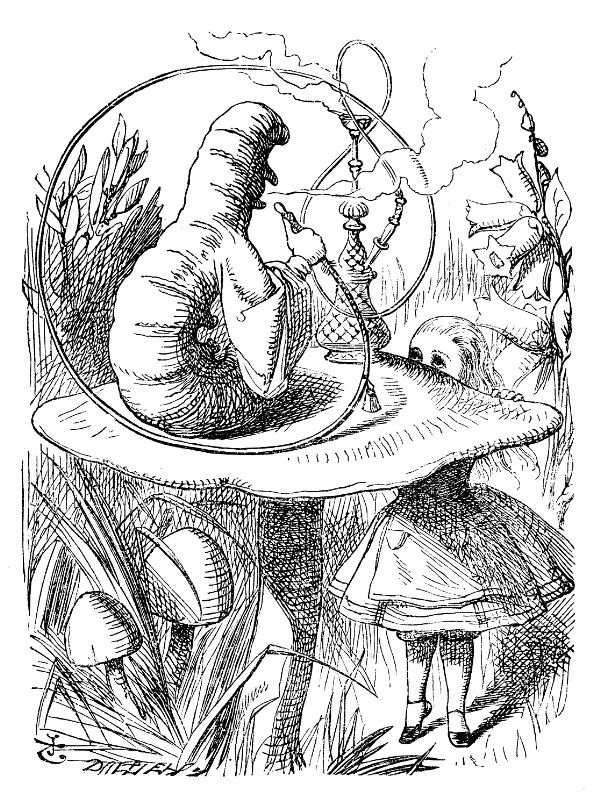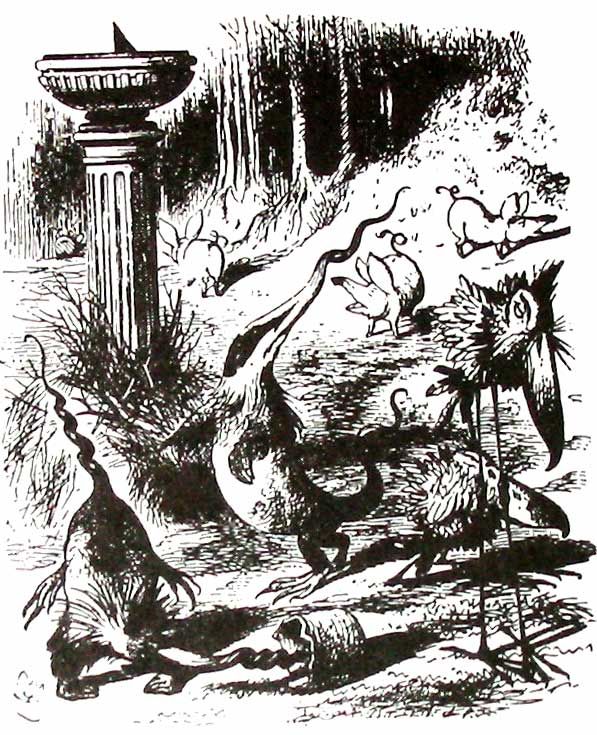Each day this month I will be profiling a notable political cartoonist. Since the choices are vast, I've decided to slim the numbers down a bit and eliminate living cartoonists. Perhaps I will do a current political cartoon stars in the future.
Here's an archive of the artists mentioned already.
Today we look at a notable British cartoonist who is most famous for his work on a children's book.
Enjoy!
In a pattern that is all too familiar at this point, John Tenniel (born 1820) tried to pursue a career in "High Art" before ultimately becoming famous as a cartoonist. He was still in his teens when he began sending in drawings to the Society of British Artists.
When he was 20, Tenniel was blinded in one eye in a fencing accident with his father (awwwwkward).
When he was 25, he entered a mural contest and won his first Royal attention (and a decent chunk of change).
While he was, as noted, most concerned with "high art," to pay the bills, he did various other art projects, including some humor work. It was his illustrations on an edition of Aesop's Fables that led to him, in 1850, being asked to contribute a cartoon to the British humor magazine, Punch.
His cartoon, "Lord Jack the Giant Killer," depicted Lord John Russell attacking Cardinal Wiseman, representing the "goliath" of the Catholic Church. The cartoon so offended Richard Doyle (one half of the cartooning team on Punch, along with John Leech) that Doyle quit upon the cartoon being accepted. Tenniel was given Doyle's job, and soon became the main cartoonist at Punch. Tenniel, though, never really felt like he belonged - he didn't think he was funny, and despite his general conservative views, he did not even find himself all that political, he was just giving the people what he felt they wanted.
He worked at Punch until 1901.
Like other British cartoonists of the era, Tenniel was concerned with the problems in Ireland...
And like most other British cartoonists of the era, Tenniel was very harsh on the Irish...
Here's an impressive piece of work by Tenniel, depicting the race to become Prime Minister...
Tenniel, in the pages of Punch, was quite critical of the inability of the police to capture Jack the Ripper, and did a number of cartoons on the subject...
Tenniel's most famous political cartoon was probably the following, noting the deposing of Otto von Bismarck by Kaiser Wilhelm. Only a few years earlier, von Bismarck was seen as the pilot of a new dawn of greatness for Germany, and now he was on the outs.
During the American Civil War, Tenniel did a number of impressive cartoons, even if they were mostly filled with offensive characterizations of America, Blacks AND Irish (Tenniel was a bit of an equal opportunity offender - so long as you weren't British, you were fair game)...
Here, the squabble is seen as, well, a squabble...
Here Lincoln and the South are acting out scenes from Shakespeare (Tenniel would do this frequently during the war)...
In possibly his most offensive cartoon, Tenniel shows what would happen if black soldiers for the North met black soldiers for the South...
Not wanting to leave the Irish out of it, Tenniel drew this one, which actually is technically kinda sympathetic to the Irish, who came to America and were forced into fighting a war for the rich. I mean, sympathetic in the way you'd feel bad for a dog if it got kicked, but still, sympathetic!!
Here, John Bull looks sorely at the American kids....
Here, Britain considers they might actually have to eventually deal with the South as an actual country (Tenniel was exaggerating heavily here - the British were nowhere NEAR ready to deal with the South at this point)
Finally, the war is over...
And Tenniel, on behalf of England, expresses his sorrow over Lincoln's assassination...
In any event, in 1865, Tenniel illustrated a novel by a young mathematician, and that is likely what Tenniel is most known for today, as his illustrations of The Adventures of Alice in Wonderland are, well, pretty darn well known....
He also illustrated the sequel, Through the Looking Glass...
Tenniel passed away in 1914.

